
Home > Events > Cycling > Tour de France > Winners > List


Tour de France Winners List
The most successful rider in the Tour de France was Lance Armstrong , who finished first seven times before his wins were removed from the record books after being found guilty of doping by the USADA in 2012. No rider has been named to replace him for those years.
> see also more information about how they determine the winners of the Tour
General Classification Winners
* footnotes
- 1904: The original winner was Maurice Garin, however he was found to have caught a train for part of the race and was disqualified.
- 1996: Bjarne Riis has admitted to the use of doping during the 1996 Tour. The Tour de France organizers have stated they no longer consider him to be the winner, although Union Cycliste Internationale has so far refused to change the official status due to the amount of time passed since his win. Jan Ullrich was placed second.
- 1999-2005: these races were originally won by Lance armstrong, but in 2012 his wins in the tour de france were removed due to doping violations.
- 2006: Floyd Landis was the initial winner but subsequently rubbed out due to a failed drug test.
- 2010: Alberto Contador was the initial winner of the 2010 event, but after a prolonged drug investigation he was stripped of his win in 2012.
Related Pages
- Read how they determine the winners of the Tour
- Tour de France home page.
- Anthropometry of the Tour de France Winners
Search This Site
More cycling.
- Cycling Home
- Fitness Testing
- Tour de France
- Cyclist Profiles
More Tour de France
- Winners List
- List of Tours
Major Events Extra
The largest sporting event in the world is the Olympic Games , but there are many other multi-sport games . In terms of single sport events, nothing beats the FIFA World Cup . To see what's coming up, check out the calendar of major sporting events .
Latest Pages
- Ballon d'Or 2024 for men and women
- Fittest - Basketballers or Tennis players?
- Olympic Athletes Height - Tallest & Shortest
- Olympic Games Winners Lists
Current Events
- Baseball World Series
- Women's Cricket World T20
- America's Cup Sailing
- 2024 Major Events Calendar
Popular Pages
- Ballon d'Or Winners
- Super Bowl Winners
- World Cup Winners
Latest Sports Added
- Juggling Sports
- Castell Tower Building
home search sitemap store
SOCIAL MEDIA
newsletter facebook X (twitter )
privacy policy disclaimer copyright
contact author info advertising

- Race Previews
- Race Reports
- Tips & Reviews
- Race Photos

Tour de France Winners List
Mathew Mitchell
- Published on June 7, 2021
- in Men's Cycling

Many great champion riders are winners of the Tour de France in its 100+ year history. There are currently 4 riders with 5 Tour de France victories: Miguel Indurain, Bernard Hinault, Eddy Merckx and Jacques Anquetil. Chris Froome is still an active rider and on 4 victories, but it looks unlikely now that he will join the 5-Wins club. Honorary mentions go to Greg Lemond, Louison Bobet and Philippe Thys with 3 victories each.
France naturally has the highest amount of victories with 36. Although it’s of note that their last victory was in 1985 and the wait is very much ongoing. Belgium has 18 victories and Spain 12 wins. Belgium are another country with a long wait, their last victory was in 1976 courtesy of Lucien van Impe. Slovenia and Colombia are the newest countries to join the list after Tadej Pogačar’s victory in 2020 and Egan Bernal’s victory in 2019. All 6 of the UK’s victories have happened in the last 10 years.
Asterisks are there to note that another rider originally was declared the winner of that year’s Tour de France.
1904 Maurice Garin was disqualified after catching a train to complete some of the race. Henri Cornet was declared winner instead.
1999-2005 The infamous Lance Armstrong had his titles stripped in 2012 due to doping. Due to the climate at the time, where doping was rife, the Tour de France chose not to replace Armstrong with another victor.
2006 Floyd Landis initially finished first but after the race was completed it was found that Landis had tested positive in a sample given near the end of the race. He was stripped of the victory and 2nd placed Oscar Pereiro won instead.
2010 Alberto Contador won the 2010 Tour de France but was stripped of the title after testing positive for minute traces of clenbuterol. Despite length legal battles, Contador was removed as winner in 2012.
Related Posts

Evenepoel confirms commitment to Soudal Quick-Step amidst fresh Red Bull transfer rumours

Victorie Guilman and Clara Koppenburg to join Cofidis next season

Roglič seals his fourth Vuelta title, Küng takes first Grand Tour stage win time trial

To revisit this article, visit My Profile, then View saved stories .
- The Big Story
- Newsletters
- Steven Levy's Plaintext Column
- WIRED Classics from the Archive
- WIRED Insider
- WIRED Consulting
The science behind Chris Froome and Team Sky's Tour de France preparations
If you buy something using links in our stories, we may earn a commission. This helps support our journalism. Learn more . Please also consider subscribing to WIRED
When Chris Froome is racing, he imagines he has a bag of coins to spend. Every time he wastes energy, he needs to pay. He pays whenever he's pedalling against the wind. He pays when he moves up the peloton during a climb instead of waiting for a flat road where he can get maximum drag off the riders around him. He even pays for trivial manoeuvres such as collecting bidons of water from the support car that follows riders during a race. He pays because all these moments imply an acceleration, an intensification of effort that puts Froome in the red.
In physiological terms, the moment that requires payment is called the threshold: the point beyond which you cannot ride comfortably for a long period of time. At any given stage of a race, Froome will try to spend as little time over that threshold as possible, even if that means losing his position within the group. Froome is attuned to it. As he crosses that threshold, he starts feeling his body screaming at him to slow down. He starts breathing faster as his muscles demand more oxygen.
Then comes the pain. When it comes, he embraces it, knowing that it's highly likely that his rivals are in even more discomfort. He might look around the peloton checking for symptoms in the riders' body language. Alberto Contador, the Spaniard from team Tinkoff and winner of all three Grand Tours - Tour de France, Giro d'Italia and Vuelta a España - hides it well, grimacing for just a second. Nairo Quintana, from Colombia, sits very still on the bike, his face expressionless.
Froome, on the other hand, is perhaps the most obvious in his suffering. Elbows out, head down, ungraceful. But pain is sometimes a signal for Froome to make his move, especially if he has made his savings, carefully considering the energy that went into every single pedal stroke. He knows that when it comes to the final climb at a key stage of a Grand Tour, the rider with the most coins left is the one most likely to win.
That's what happened during stage ten of the 2015 Tour de France . It was the first mountain of the Tour, a hilly 166km stretch of road between Tarbes and La Pierre-Saint-Martin in the Pyrenees that finished at an elevation of 1,610m after 15.3km of climbing. Froome, who weighed 67.5kg at the time, averaged a power of 414 Watts during that climb. With 6.5km to go, he accelerated for 24 seconds, averaging 556 Watts. It was a devastating attack that left Quintana, his nearest opponent, for dust, and a performance so spectacular that journalists questioned its provenance.
In the subsequent press conference, Tim Kerrison, Froome's coach, told reporters that it was not unexpected considering some of the numbers the rider had achieved in the past. For instance, Froome's average power over 60 minutes, including the run-in to the climb, was 366 Watts, and Kerrison pointed out that Froome had exceeded that level on 15 occasions since 2011, in racing and training. Furthermore, his heart rate readings indicated that he had reached the stage feeling fresh and in good physical condition. In other words, he had saved most of his coins. "It's great when you manage to save as much as possible and you're ready for the last climb," Froome says.

"You know you're going to lay it all out there and just go for it." Of course, Froome's extraordinary performance wasn't just a direct result of his natural ability, but a by-product of his training. Kerrison was able to cite exactly how many times Froome had exceeded the power output number that he registered at Pierre-Saint-Martin; after all, he's been tracking data from every single pedal stroke his riders take, both in racing and training, for more than four years. That data is the foundation for the comprehensive and detailed training programme that all Team Sky riders undertake. "I work on the basis that everything we do is probably wrong," Kerrison says. "There are sure to be better ways of doing things. Pretty much every day we do things differently. The riders understand why we do things the way we do. They can always see how it relates to the overall picture."
Chris Froome, 31, has blue eyes and close-cropped hair. His body shape is ectomorphic, with long, lean limbs. His demeanour is quiet but polite and inclusive. When we sit down to talk in the living room at Team Sky's house in Nice, he asks for permission before reclining on the sofa. He either looks straight at the ceiling or across his shoulder directly at WIRED when making a particularly salient point, such as the moment he began to have confidence in himself as a rider and started being smarter about his racing style. He used to be careless with his energy. He was impulsive. Or sometimes team tactics dictated he had to attack at the beginning of the stage and, by the time the race reached the key moment of a climb, he would have nothing left to give.
It's not that Froome lacked the natural capacity; he always knew he had, as he puts it, a "big engine". He just didn't know how to use it. When he was tested in a physiology laboratory in July 2007, in Lausanne, Switzerland, he was told that the maximum rate at which he could consume oxygen - a physiological parameter that goes by the name of VO2max - was 80.2ml of oxygen per minute per kilo of body weight, and his threshold power sat at a 420W. These were the numbers of a potential Tour de France champion.
When Froome joined Team Sky in 2010 from Barloworld, he would produce incredible numbers in training, frequently much higher than his teammates, even though unbeknown to him at the time his body was ridden with parasitic flatworms (a disease called bilharzia, for which he was eventually treated). And yet, he was inconsistent when competing. By the 2011 season, Team Sky's performance director Dave Brailsford was considering dropping him from the squad. His standing in the team was such that the pre-race plan for the 2011 Vuelta a España said: "[Teammates] Xabier [Zandio], Morris [Possoni] and Froome will do their best to survive as long as possible and will fetch bottles, etc." He finished that Vuelta in second place, ahead of Bradley Wiggins, Team Sky's leading rider at the time. That, he says, was the big turning point in his cycling career. A year later, when Wiggins won the Tour de France, Froome finished second.
"I began to understand that I belonged with the best climbers," Froome says. "I wasn't struggling the way I thought I would be." He gained confidence and learned how to use his internal engine. When he repeated the physiological test in August 2015, his values hadn't shifted much - VO2max was now 84.6 and his threshold power 419W - the difference was due to his weight loss of 5.7kg. These were the numbers of a two-time Tour de France winner.
In 2009, when Dave Brailsford announced the creation of Team Sky, Britain's only professional race cycling team, the goal was to win the Tour de France within five years - a bold target considering that Britain never had much tradition in road cycling.
Winning the Tour de France had been a dream Brailsford had harboured since he was a teenager. He was brought up in a mining village in North Wales, and in 1983, aged 19, he decided to try competing in the Tour de France. He stuck his bike inside a cardboard box and bought a one-way ticket to France. "I grant you, I was a bit naive and didn't really appreciate the magnitude of the challenge," Brailsford says. "I went to the end of a bike race, when everybody arrived with their cars. I looked around for the nicest kits, went up to them with my bike in its box and said, "Hi, can I race for your team?" And they were all like, "What?"
Brailsford ended up spending four years in Saint-Étienne, failing to race at the Tour de France, failing even to become a professional. He eventually returned to the UK and completed a degree in sports psychology followed by an MBA at the University of Sheffield Management School.
In 1997, he was hired by British Cycling as an operations director to look over its business side. The programme was run by Peter Keen, a respected sport scientist known for his innovative approach to coaching. As performance director, Keen was taking steps to modernise an underfunded, understaffed team with no infrastructure for proper training. In 1998, after the announcement of Lottery funding for sports in the UK, Keen put together an ambitious and detailed plan entitled the World Class Performance Programme. He stated his vision clearly: to make the UK the world's top cycling nation by 2012. Few people believed it was possible.
At the core of his plan was the application of a scientific and rational method to the art of cycling performance. It was a clear break from a past dominated by a mindset rooted in tradition, low self-belief and an unwillingness to explore new technology. British Cycling hired performance analysts, physiologists and biomechanists. "We had a lack of history in terms of cycling. There were no professional cycling coaches, so we hired smart sport-science graduates, "Brailsford says. "You might say that with hindsight that was a great decision. We were lucky to have this group who came up with all kinds of weird and wonderful ideas. Nobody ever said that something was not going to work."
Perhaps the most significant step early on was the acquisition of a set of power meters for the bikes, which allowed the measurement of the energy per second the cyclists could produce: their power output, in other words. Whereas before, cyclists had to rely on monitoring heart rate, speed and perceived exertion - all parameters that were easily influenced by environmental factors and had nothing to do with performance - power output was an objective measure and was the perfect tool for performance-based training. It allowed track cycling to become a data-driven sport.
The power meters, along with other technologies like video analysis and aerodynamic testing, allowed British Cycling performance analysts to create a systematic analysis of the numbers - lap times, cadences, power outputs, drag factors - that their riders could produce. They would also do an in-depth analysis of the numbers that were needed to win races, a process they called analysis of the demands of the event. "We would go to the nth degree in terms of truly understanding what winning looked like," Brailsford says. "This allowed us to create a document called 'What It'll Take to Win'. We spent more time than any other team in the world doing that particular work."
By the time Keen left in 2003, Brailsford had inherited a British Cycling team that had already accrued significant success in the Olympics. Alongside its emphasis on sport science, Brailsford introduced an organisational principle called "Performance by the aggregation of marginal gains". As a philosophy, it was akin to a widely known business concept known as Kaizen, popularised by Toyota, which requires the implementation of a culture of continuous improvement. In fact, the name "marginal" came to Brailsford as he was reviewing some studies he had done during his MBA on marginal costing. In cycling terms, it meant breaking down everything that goes into riding a bike and looking for the one per cent shifts that would make a difference. It seemed obvious to Brailsford that going after big ideas was difficult to do on a daily basis, but small gains, which were often overlooked, could be regularly aggregated to create meaningful change.
"Marginal gains came out of the magnitude of change required, in terms of where we were and where we wanted to get to," Brailsford says. "And then, equally, I know this sounds a bit contradictory, the margins of victory. You could win a race by one-tenth of a second. And you're thinking, 'OK, if we could win a race by one-tenth of a second, all these little things over here could equate to one-tenth of a second. So, why won't we do them?'"
After the Beijing Games in 2008, with Brailsford still at the helm, British Cycling had become one of the most extraordinary success stories in the history of sport. Atlanta 1996: two medals, 12th place; Sydney 2000, four medals; Athens 2004, four medals and third place; Beijing 2008: 14 medals and first place. This was the sort of epic British success story that Brailsford wanted to replicate in road cycling with Team Sky.
"When we created Team Sky, we sat down with a blank sheet of paper and said: "Right, we're going to create a professional cycling team. How should we do it?'" Brailsford recalls. "We took what we'd learned and tried and tested over the years in British Cycling and put it all on the page."
During its first year of operation, Team Sky became well known for its relentless application of marginal gains, in stark contrast with the traditional professional teams at the time. Team Sky's jerseys were designed with a thin blue line that ran down the spine to symbolise the narrow margin between victory and defeat, made from a special black fabric that reflected heat. It hired Honda's Formula 1 logistics manager Gwilym Mason-Evans to gut the inside of the team bus and completely redesign it. It employed a team of carers who would go to the hotels where the riders would be staying to remove mattresses, vacuum the beds underneath and replace them with mattresses and pillows made of elastic foam that had been individually customised so that the riders could maintain the same posture every night. It taught its riders how to wash their hands properly, made them carry hand gels at all times and forbade handshakes to prevent the spreading of illnesses during competition. It had bike-fitting sessions using 3D motion-capture technology in Valencia, Spain. It ordered the manufacture of a Perspex cocoon in which the team could warm up away from crowds and the media.
The sporting results, however, were disappointing. Bradley Wiggins had finished fourth at the previous Tour de France riding for Garmin-Slipstream. Now Team Sky's main contender, he finished the next in 24th place. "We'd come into the sport thinking that we knew a lot, we'd won all these Olympic medals and it was going to be easy," admits Fran Millar, Team Sky's director of business operations and head of winning behaviours. "Bradley was having ice baths and drinking cherry juice and all sorts of stuff, but he just wasn't fit enough. Dave said that we had concentrated too much on the peas, and not on the steak."
Prior to the start of the 2010 season, Brailsford hired Australian performance analyst Tim Kerrison. He was a former rower with extensive experience of coaching and as a sport scientist for swimming. He had been exclusively involved in swimming since 1998, working with a group of female sprinters who went on to have a very successful 2004 Olympics in Athens. "There was this ingrained culture of swimming which was very conducive to developing good aerobic distance-based, endurance-based athletes, but not sprinters," Kerrison says. "We recognised if we do what we've always done, we'll get what we've always got. That needed to change. Let's forget everything we know about swimming and the way everyone trains and think from first principles. What do we know not just about swimming, but other sports and physiology and training science?"
Most training programmes at the time were based around the idea of periodisation. "It's essentially the way the emphasis of training shifts over time," Kerrison says. "This can include a greater emphasis on workload or recovery, or a shift in the emphasis of the type of training within a training block." Traditionally, periodisation involved an initial training period which was predominantly focused on endurance and aerobic capacity, with more intense anaerobic workouts that included speed and power training added later in the year as a competition approached.
"We turned the conventional periodisation idea around," Kerrison says. "It made more sense. One of the foundations of sports training is specificity, which means that everything you do in training has to be related, to some degree, to what you need to do in competition. So we began working on the team's anaerobic systems from the very beginning, developing their strength, speed and power. Only later did we lay on more aerobic training."
Kerrison had been working as a sports scientist for the British swimming team since 2005 when Brailsford contacted him. He had already received a job offer from England Cricket that he was about to sign, and although Kerrison had never worked with cyclists, Brailsford convinced him to join Team Sky. "I grew up thinking that the Tour was one of the ultimate sporting challenges," Kerrison says. "I still think it is. I can't think of many things more challenging and special to me than winning the Tour de France. So it's a meaningful goal. How realistic it was, I wasn't sure."
When Kerrison joined Team Sky in late 2009, Brailsford told him that they were not expecting anything from him until November 2010. His mission was just to follow the team around as they competed for their first Tour de France. They hired a camper van, nicknamed Black Betty, which Kerrison shared with fellow performance analyst Matt Parker, then Team Sky's head of marginal gains. Kerrison spent this time taking notes and talking little. "He travelled round with the team working with our power data and not really visibly much else. Everyone was just, 'Who is this weird Australian who lives in a camper van?" Fran Millar recalls.
At the end of 2010, after the first season of racing, Brailsford told Kerrison, who had been in cycling for about a year, that he was going to coach Bradley Wiggins and that he had to formulate a plan to win the Tour de France. "I did what I had done with the sprint swimmers in Australia: go back to the very first principles," Kerrison says. "It was a huge benefit to not have my judgment clouded by all the other stuff I didn't know and just quickly work out exactly what I needed to know. We needed to forget about the culture, and forget about all the bullshit and the peripherals."
One of the first things Kerrison did was to try and find out exactly what it would take to win the Tour. After all, much of the success of British Cycling had been built around a methodical analysis of an event's demands and knowing what it took to win. "Riders used power and trained for power to a certain extent," Brailsford says. "They would download their training information into the system and get nothing back, so they stopped doing it. Kerrison changed all that. Our compliance rates, in terms of riders, when they're at home downloading the data, went through the roof, because they all started seeing how it affected their training plans."
Kerrison adopted a database system called Training Peaks in which the athletes could download the data so that he could study it. Using this data, Kerrison did a power curve analysis for each athlete that showed, for a given duration - from one second to three hours - how much power a rider could sustain. ("It's an ongoing thing now," Kerrison says. "Every day we have a new current power curve for the riders. Over time we have built up a knowledge of what this means and how to interpret it.") Then, based on the data available for previous Tour de France winners and on extrapolations, he estimated the power curve corresponding to what it would take to win the Tour de France. "Those were the demands of the event," Brailsford says. "We compared the capacity athletes had against what was needed to win and trained the athletes against that."
Kerrison also understood that Team Sky would need good climbers that could perform at altitude and at high temperatures. "A lot of decisive moments in the Grand Tours are performed at well over 1,000 metres, sometimes as high as 2,500 metres," Kerrison says. "So if you're not able to perform at that level, then you're screwed, basically."
The body adapts to training at altitude, mostly through respiratory adaptations, recalibrating to different levels of oxygen. To address this, Kerrison scouted Europe for high-altitude camp locations, eventually deciding on Tenerife. "Britain doesn't have high mountains and heat so our cyclists weren't used to it," Kerrison says. "I did start to question if we were going to be able to compete with guys who spent their whole lives growing up riding in the mountains at altitude in the heat."
Still, Kerrison wondered how quickly the athletes would be able to adapt, so at the start of their first Tenerife camp, they tested their athletes' efforts at altitude and at sea level. On day one, the average difference in the athletes' threshold between sea level and 2,100 metres was about 70W. By day three, it was 35W. After two weeks there was no difference. The riders had acclimatised.
When Kerrison presented his plan to win the Tour de France, he essentially said that they had to forget about the details until they got the basics right. For Wiggins, those basics were conditioning, weight management, time trialling and performing at altitude and in the heat. "We were so caught up with the bells and whistles and all the clever stuff," Brailsford says. "We delivered all of that in year one and it didn't work. We didn't get our basics right. That was a big learning and Kerrison was a bit part of that. We decided on a new mantra that winter: 'Doing the simple things better than anybody else.'" That year, Bradley Wiggins crashed out on an early stage of the Tour, breaking his collarbone. In 2012, however, he became the first British rider to win it.
One afternoon in April 2016, Kerrison is at the wheel of one of Team Sky's Ford Mondeos following Froome as he pedals a few metres ahead in the hills around Nice, in the south of France. He had already completed most of this training plan for the day: two flat efforts on the time trial bike - 15 minutes and 12 minutes - with about five minutes of recovery in between. Then he took part in a 20-minute climbing effort on the time trial bike before switching to a road bike and was now on his final effort: 12 minutes of "spiked efforts" building up to four minutes of threshold. "Froome's anaerobic threshold is on around 450 Watts, but he rarely does anything at a constant pace," Kerrison explains. "He might do one minute about 30 Watts over threshold and then three minutes with ten Watts under threshold. Overall, the effort over that period of time would be at threshold."
This goes back to Kerrison's idea of specificity. While sometimes the pace is constant at a race, other times it is very dynamic, with pace changing all the time. That's what Froome is training for. Of course, on a more fundamental level, what Kerrison is manipulating in his mind is a more complicated set of equations describing the various cause-effect relationships between a training load and a physiological adaptation.
Consider the interplay between the distinct aerobic and anaerobic motors of an athlete. In simple terms, below the physiological landmark of the lactate threshold, the body is able to clear lactate as fast as it is produced. Above that threshold, it accumulates.
"People think developing the anaerobic system is a bad thing because it produces lactate and lactate is bad," Kerrison says. "It's only bad if you can't remove it. Otherwise, it gives you power. When I was in Australia we had some distance swimmers who, no matter how hard we pushed them, just didn't produce any lactate. I'm not sure whether that was because they weren't producing any or because they were efficient at removing it. We found out when we first measured Chris that it was the same. He would do a maximum effort and when we measured lactate there was nothing. Based on what I knew from swimming, I knew this was really promising. He was producing incredible power and whatever lactate he was producing he was able to remove. That indicated that we needed to increase his anaerobic capacity - his ability to produce lactate - because he had an ability to remove it."
Kerrison then adds another layer to the consideration of Froome's physiology: the nutritional fuel he uses for this aerobic effort. This fuel is a mixture of carbohydrates and fats, which are metabolised in different proportions depending on the intensity of the effort. The more intense the effort, the more carbs are required. But to Kerrison, even the way the body fuels can be trained and adapted, shifting it towards a type of metabolism that specifically benefits a rider racing the Tour de France.
"We restrict carbs in training and this shifts the metabolism," Kerrison says. "It drives an adaptation that makes the body become more efficient at using fat as fuel. So up to a certain intensity, say 200 Watts, Froome will predominantly be using fat as fuel. A significant portion of a typical five-hour stage is ridden at a relatively low intensity, meaning he'll be burning mostly fat, saving the carb stores for the more intense stages of the stage where it's needed the most - for example, the final mountain climb."
According to Kerrison, the interaction between those three types of metabolisms - carbohydrate-fuelled aerobix, fat-fuelled aerobic and anaerobic - is the foundation of Froome's training plan. When we return to Team Sky's house, Kerrison shows WIRED a five-page checklist that he keeps for each of his riders. It includes items such as power curve analysis, demands of the events, fat-carb metabolism, heat and altitude. There are 74 factors, qualitative and quantitative, that encapsulate Kerrison's understanding of what it takes to win.
It's the blueprint of what it takes to become a Tour de France winner, a title that Froome is defending this year after victory in 2015. He won it pretty much the same way as he had in 2013: by riding the first mountain stage very aggressively and earning a substantial advantage early in the race. That strategy caught everyone off guard. It wasn't part of Team Sky's plans; it was a decision that Froome made a couple of weeks before the start of the Tour and even Kerrison wasn't sure it was the best way to race.
Indeed, by the penultimate stage, Froome was struggling physically, exacerbated by a chest infection. Quintana, second in the general classification and 3'10" behind the leader, attacked relentlessly. "It was one of the days I had to fight the hardest to keep the yellow jersey," Froome recalls. "The pain was severe, but I knew that once I got to the finish line it would be done."
This article was originally published by WIRED UK
- off.road.cc
- Dealclincher
- Fantasy Cycling
Support road.cc
Like this site? Help us to make it better.
- Sportive and endurance bikes
- Gravel and adventure bikes
- Urban and hybrid bikes
- Touring bikes
- Cyclocross bikes
- Electric bikes
- Folding bikes
- Fixed & singlespeed bikes
- Children's bikes
- Time trial bikes
- Accessories - misc
- Computer mounts
- Bike bags & cases
- Bottle cages
- Child seats
- Lights - front
- Lights - rear
- Lights - sets
- Pumps & CO2 inflators
- Puncture kits
- Reflectives
- Smart watches
- Stands and racks
- Arm & leg warmers
- Base layers
- Gloves - full finger
- Gloves - mitts
- Jerseys - casual
- Jerseys - long sleeve
- Jerseys - short sleeve
- Shorts & 3/4s
- Tights & longs
- Bar tape & grips
- Bottom brackets
- Brake & gear cables
- Brake & STI levers
- Brake pads & spares
- Cassettes & freewheels
- Chainsets & chainrings
- Derailleurs - front
- Derailleurs - rear
- Gear levers & shifters
- Handlebars & extensions
- Inner tubes
- Quick releases & skewers
- Energy & recovery bars
- Energy & recovery drinks
- Energy & recovery gels
- Heart rate monitors
- Hydration products
- Hydration systems
- Indoor trainers
- Power measurement
- Skincare & embrocation
- Training - misc
- Cleaning products
- Lubrication
- Tools - multitools
- Tools - Portable
- Tools - workshop
- Books, Maps & DVDs
- Camping and outdoor equipment
- Gifts & misc

The road to victory: How Team Sky propelled Bradley Wiggins to Tour de France victory
Bradley Wiggins has today become the first British cyclist to win the Tour de France in its 109-year history. The 32-year-old’s victory is the result of 12 months’ planning by Team Sky after he crashed out of the 2011 race with a broken collarbone. That plan still needed to be executed on the road, however, and Wiggins and his team mates did it near perfectly. We look at the key stages that took him to victory.
Prolouge Saturday 30 June Liège (6.4 kilometres)
Posting the second quickest time behind RadioShack-Nissan’s Fabian Cancellara, Wiggins gained vital time on the two men seen as his principal rivals for the overall win, 17 seconds on defending champion Cadel Evans of BMC Racing and 18 seconds on Liquigas Cannondale’s Vincenzo Nibali. Had Wiggins gone eight seconds quicker, he could have taken the maillot jaune and potentially worn it from start to finish. That would have meant an extra week of post-stage press conferences, however, a distraction he didn’t need during what proved to be a nervous opening week of the race.
Stage 1 Sunday 1 July Liège- Seraing (198km)
In terms of the final positions on GC, today was crucial not for anything that happened to Wiggins or his rivals from other teams, but for the puncture suffered by Chris Froome inside the closing final kilometres ahead of a tough final climb. If Froome had not lost the best part of two minutes to his team mate, the dynamics of the race would have been very different – with the biggest prize in cycling in his sights and a margin of mere seconds between them, would he have been able to resist attacking his fellow Team Sky rider when the opportunities presented themselves in the mountains?
Stage 6 Friday 6 July Epernay-Metz (207km)
The misfortune of being in the wrong place at the wrong time cost Wiggins dear when a crash on an innocuous stretch of road saw him break his collarbone during on the first Friday of last year’s Tour. Today, he was safely near the front of the bunch when what several riders described as the worst crash they’d ever seen took out a sizeable chunk of the peloton 25 kilometres out. Wiggins had twice been held up in crashes earlier in this year’s race, but both happened inside the closing 3 kilometres, meaning no time could be lost. Giro d’Italia winner Ryder Hesjedal, seen as a potential challenger for the podium here, wasn’t so lucky – the crash ended his race.
Stage 7 Saturday 7 July Tomblaine-La Planche des Belles Filles (199km)
Today was always going to see the first big shake-up on GC with a tough final climb never before used in the Tour. The smart money was on an attacking climber to win, but Team Sky had done their homework and it paid off handsomely, Froome taking the stage and Wiggins the maillot jaune, only Evans, Nibali and Cofidis rider Rein Taaramae able to stay with them by the end. It was a phenomenal show of the team’s strength in depth in the mountains, and one that is bound to have had a psychological impact on Wiggins’ rivals, even if they wouldn’t admit it publicly.
Stage 9 Monday 9 July Arc-et-Senans-Besancon (41.5km ITT)
The race wasn’t quite at its halfway point, but if you had to pick one day when the 2012 Tour de France was won and lost, it’s this one. Wiggins and Froome simply blew the opposition apart, including four-time world time trial champion Fabian Cancellara. By the end of the day, Wiggins would lie nearly two minutes ahead of Evans on GC, while Froome would leapfrog Nibali into third place overall. The toughness of the course took many riders by surprise, but not Team Sky who’d ridden it earlier in the year.
Stage 11 Thursday 12 July Albertville-La Toussuire
A day of drama in the Alps as Nibali twice attacked Wiggins and Froome and failed to shake them off – the big talking point, indeed, was whether the latter had attacked his team mate in the maillot jaune, giving rise to a tetchy exchange of tweets between the two Team Sky riders’ partners. Meanwhile a below-par Evans got dropped and by the end of the stage it was an unprecedented British one-two on GC.
Stage 14 Sunday 15 July Limoux-Foix (191km)
Team Sky had prevented any attacks on the tough climb of the Mur de Péguère but 2011 winner Evans was in trouble again as he was stranded following a puncture on the summit. As it became evident that the route had become sabotaged with carpet tacks scattered on the road, Wiggins led his team mates in neutralising the main group. No movement at the top of the GC, but the gesture helped Wiggins seal the hearts and minds of the French press and public, already charmed by his off-the-wall humour and command of their language.
Stage 16 Wednesday 18 July Pau – Bagneres-de-Luchon (215km)
The first of two big stages in the Pyrenees that represented the last chance for anyone to get time back on the Team Sky pair at the top of the overall standings. With Tomas Voeckler on his way to the stage win, back in the GC group Nibali went for it on the Col d’Aspin and only two riders could go with him; unfortunately for the Sicilian, they were Wiggins and Froome. Evans again had a torrid day, losing more time as a result of a stomach upset that would plague him throughout the final week as his title slipped away.
Stage 17 Thursday 19 July Bagneres-de-Luchon-Peyragudes (143km)
While Alejandro Valverde of Movistar was heading to a solo stage win, Nibali’s Liquigas-Cannondale team took the initiative back in the maillot jaune group, Ivan Basso setting the Sicilian up to attack on the final climb. Again, Wiggins and Froome were able to respond, and this time they distanced their closest rival, the race leader overcome by emotion as he headed over the final climb knowing he was on his way to making history. Inside the final kilometres, Froome looked stronger, some arguing he showed disrespect to the maillot jaune as he looked back and gestured at Wiggins; other believed that Team Sky had issued orders preventing him from trying to go for the stage win. In finishing second and third on the stage, the pair were a step closer to a British one-two in Paris, however.
Stage 19 Saturday 21 July Bonneval-Chartres (53.5km)
By now, the question was less whether Bradley Wiggins would become the first British winner of the Tour de France, but by how much? The answer to that was 3 minutes 21 seconds as the maillot jaune completed the course quickest, 1 minute 16 seconds ahead of Froome who himself sealed a convincing second place overall, nearly 3 minutes ahead of Nibali. Wiggins and Froome, of course, would safely get through Sunday’s stage in Paris. It wouldn’t affect the overall, but there was still time for Team Sky to get their third stage win in three days, and their sixth of the race, as Cavendish took his fourth consecutive win on the Champs-Elysees.
Help us to fund our site
We’ve noticed you’re using an ad blocker. If you like road.cc, but you don’t like ads, please consider subscribing to the site to support us directly. As a subscriber you can read road.cc ad-free, from as little as £1.99.
If you don’t want to subscribe, please turn your ad blocker off. The revenue from adverts helps to fund our site.
Help us to bring you the best cycling content
If you’ve enjoyed this article, then please consider subscribing to road.cc from as little as £1.99. Our mission is to bring you all the news that’s relevant to you as a cyclist, independent reviews, impartial buying advice and more. Your subscription will help us to do more.
Simon joined road.cc as news editor in 2009 and is now the site’s community editor, acting as a link between the team producing the content and our readers. A law and languages graduate, published translator and former retail analyst, he has reported on issues as diverse as cycling-related court cases, anti-doping investigations, the latest developments in the bike industry and the sport’s biggest races. Now back in London full-time after 15 years living in Oxford and Cambridge, he loves cycling along the Thames but misses having his former riding buddy, Elodie the miniature schnauzer, in the basket in front of him.
Add new comment

What's a Prolouge then? Isn't that something to do with the Winter Olympics?
- Log in or register to post comments
Opening paragraph: "That plan still needed to be executed on the road, however, and Wiggins and his team mates did it near perfectly."
Didn't mention them all by name, and you're right, perhaps we should have done, but the focus of the article was on where the time was won and lost between the leading men on GC.
If you've been following the stage by stage reports, you'll know we have acknowledged the role played by all members of Team Sky, sorry if you thought this one had a bit of tunnel vision.
Latest Comments
I've worked in Wokingham for the last year and you're so right, you'd think they were going equipped to cross a continent with the cars on the...
The brand was bought by the Walton's (Walmart) a few years ago, so losing $70m+ is nothing to them. I also think most of that 'loss' is just moving...
Deleted i should learn to read the article more thoroughly before posting!
Eburthebike, I find it interesting how you a) seem to only mention disbenefits that will actually not affect the cyclists that are wearing a helmet...
I wanted to ask about how you were loaded, Andy, it obviously works but you appeared lop-sided and everything was up-front.
Vixa - wellness for cars - unironic app from the AA.
It was in his manifesto. Westminster have had years of notice.
It's my secret I've been kidnapped signal...it happened to come up on my Facebook feed so I took a screenshot, no visiting their site or giving...
I wonder if this has the same weakness as another RD with a large diameter pulley centre...
Kudos for all the info and an interesting topic - you really know your stuff. But at times it becomes hard to digest because so much info is being...
Most Popular News
'This is so much more than a number': Six of the best Ineos Grenadiers wins as team claims 500th race victory
Pauline Ferrand-Prévot took the 500th team win at the weekend
- Sign up to our newsletter Newsletter
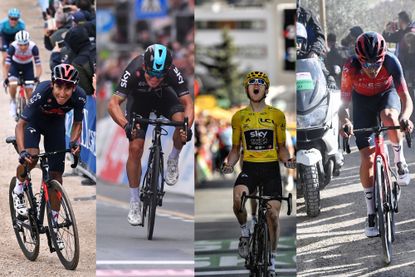
Ineos Grenadiers claimed its 500th race victory this weekend, thanks to Pauline Ferrand-Prévot winning a French Cup mountain bike race in France.
Since its days as Sky, the squad has become one of the biggest and most successful cycling teams in the world. Amongst its haul of accolades, the team has won multiple Grand Tour titles, including seven Tours de France. From the Tour of Britain to the Arctic Race of Norway, Ineos have won across the world.
Sir Bradley Wiggins won the team’s first Grand Tour, the 2012 Tour de France , and the team has dominated the biggest race in the world for a number of years through Chris Froome, Geraint Thomas, and more recently Egan Bernal .
As well as Grand Tour titles, the team has also won a range of major one day races including Omloop Het Nieuwsblad, Paris-Roubaix and Strade Bianche. Almost all of the team's wins have been from men, with Ferrand-Prévot only joining in 2023.
"This is so much more than a number - it's the output of so many people, riders, support staff and partners, especially Pinarello and Kask who've been part of every single win - each of whom has given everything for the team," John Allert, the team's CEO said to Cycling Weekly . "To all of them I say a massive thank you."
To mark the team's 500th win, we have picked out six of the most memorable in recent times.
Tom Pidcock - Strade Bianche 2023
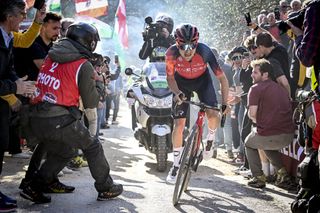
Winning on Alpe d’Huez at the Tour de France in 2022 was undoubtedly one of Tom Pidcock’s career defining moments to date, although to some, his Strade Bianche victory several months later was arguably more significant and one of Ineos’ biggest successes in recent times.
Get The Leadout Newsletter
The latest race content, interviews, features, reviews and expert buying guides, direct to your inbox!
Pidcock had already won a major one-day race, Brabantse Pijl - and gone close at Amstel Gold - so all the signs pointed to an imminent major one day victory for the Yorkshireman.
In a typical gutsy showing from the then 23-year-old, it arrived in blockbuster fashion on the white gravel roads of Tuscany.
Pidcock took flight on the race’s key gravel sector, the Monte Sante Marie, before powering away towards Siena and a famous victory. At times, it appeared like the select group of chasers were going to reel him in, but Pidcock masterfully controlled the gap to hold on for the win.

Chris Froome - Giro d’Italia 2018, stage 19
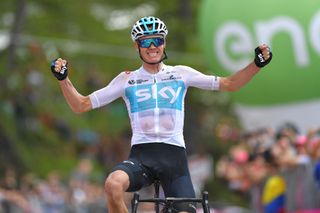
Chris Froome went into the 2018 Giro as one of the hot favourites for victory but, as can happen in any of the Grand Tours, luck wasn’t on his side in the early stages.
Froome crashed during the recon of the opening time trial in Jerusalem and various other events appeared to halt his progress in the race in the opening period. The British rider won the stage that finished on Monte Zoncolan, but going into the mountainous stage 19, he was still significantly down in the general classification on the pink jersey wearer at that time, Simon Yates.
What happened next was simply breathtaking. Froome attacked 80 kilometres from the stage finish on the Colle delle Finestre before going on to win the stage by more than three minutes ahead of second placed Richard Carapaz.
As a result of his huge exploits, Froome pulled on the leader's jersey and eventually went on to take a memorable overall win in Rome.
Geraint Thomas - Tour de France 2018, stage 12
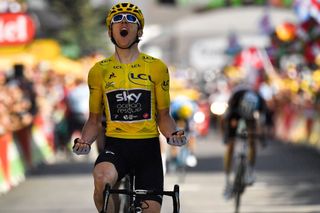
Going into stage 12, finishing on Alpe d’Huez, the GC boat had been well and truly rocked at Team Sky after Geraint Thomas had won the first stage of a Tour alpine double header at La Rosière.
Prior to the race, Chris Froome was seen by many as being the team’s leader at the Tour. That undoubtedly changed in the mountains after Thomas left the Alps in the race leader's yellow jersey and with two more stage wins to add to his collection after doubling up on the slopes of the famous mountain.
Speaking after the stage, Thomas ruled out his chances of overall victory in Paris.
He said: "Honestly no, I just want to enjoy this victory. It's unbelievable. Even when I was crossing the line I was thinking 'surely there's someone in front'. It was just nuts."
Thomas went on to win the race overall, and famously dropped the microphone at the end of his winners speech on the Champs-Élysées in the French capital.
Egan Bernal - Giro d’Italia 2021, stage 9
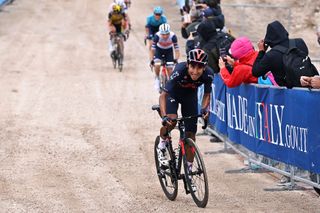
All eyes were on Bernal ahead of the 2021 Giro, as he looked to prove he was much more than just a one off winner of the Tour de France.
The Colombian won Paris-Nice and the Tour in 2019 and many expected him to add a further Grand Tour win to his collection in the years that followed. At the Corsa Rosa , Bernal didn’t disappoint, and further underlined his credentials as one of the most exciting young prospects in cycling at that point.
Bernal took control of the race on stage nine, attacking on the steep final gravel climb to Campo Felice to take a first-ever Grand Tour stage win. He also pulled on the race leader's pink jersey for his troubles and put time into another pre race favourite, Remco Evenepoel.
The Ineos Grenadiers rider went on to win the race overall, adding a second stage victory on a snow affected stage to Cortina d’Ampezzo in the Dolomites.
Ian Stannard - Omloop Het Nieuwsblad 2015
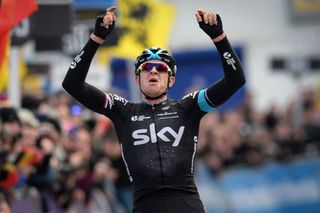
One of Team Sky’s most memorable one day victories was Ian Stannard’s second successive triumph at Omloop Het Nieuwsblad.
In a four up breakaway, Stannard outfoxed his three compatriots - three Etixx-QuickStep riders, including Tom Boonen - to power away to victory in Ghent.
During the race, the odds seemed very much stacked against the British rider, with Belgian fans rubbing their hands together with glee at the prospect of victory for Boonen.
However, Stannard had the last laugh, distancing two of his rivals, including Boonen, before outsprinting Terpstra for the win.
"I’m certainly not the smartest, but hopefully one of the stronger ones," he joked afterwards as he reflected on his surprise win.
Michał Kwiatkowski - Milan-San Remo 2017
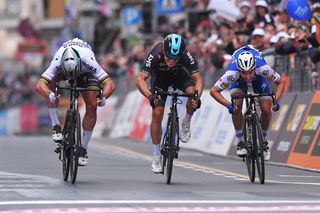
Nowadays, Michał Kwiatkowski is perhaps not one of the headline names at Ineos Grenadiers, often taking a support role as opposed to team leadership in races. But in the team's days as Team Sky, the Polish rider played a significant role at the head of the action.
That was particularly evident in 2017, when Kwiatkowski started his Spring campaign with a bang at Strade Bianche before going on to take a bigger prize, a Milan-San Remo victory.
Kwiatkowski helped the team take a masterful win at the longest race of the year.
After tracking accelerations on the Poggio from his former rival at junior and under-23 level, Peter Sagan, Kwiatkowski outsmarted the Slovakian and Julian Alaphilippe in a three-up sprint on the Via Roma to claim one of the most sought after trophies in men’s professional cycling.
Thank you for reading 20 articles this month* Join now for unlimited access
Enjoy your first month for just £1 / $1 / €1
*Read 5 free articles per month without a subscription
Join now for unlimited access
Try first month for just £1 / $1 / €1
Tom has been writing for Cycling Weekly since 2022 and his news stories, rider interviews and features appear both online and in the magazine.
Since joining the team, he has reported from some of professional cycling's biggest races and events including the Tour de France and the World Championships in Glasgow. He has also covered races elsewhere across the world.
As well as on the ground reporting, Tom writes race reports from the men's and women's WorldTour and helps with coverage of UK domestic cycling.
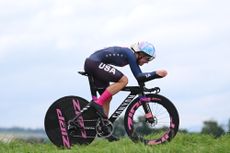
Your ultimate guide to the routes for all the time trials at the 2024 Zürich Worlds
By Adam Becket Published 18 September 24
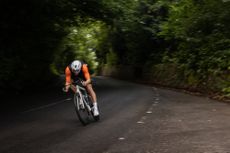
With stiff competition released in 2024, how does the Tarmac stack up now...
By Joe Baker Published 18 September 24
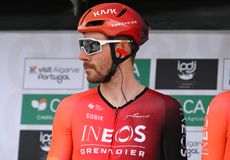
British squad's experienced road captain believes his team has been "overtaken" by others
By Tom Davidson Published 6 September 24
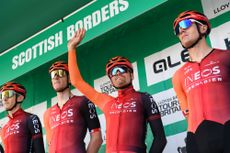
Cummings was on the provisional start list submitted to the race organiser, but was replaced by Kurt Bogaerts
By Tom Thewlis Published 4 September 24
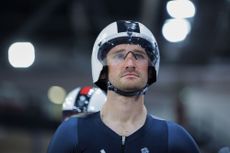
After winning a silver medal at the Paris Olympics, Bigham then left his role at Ineos due to his frustrations with the setup currently in place at the team
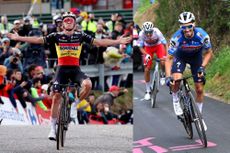
Double Olympic champion and Alaphilippe headline Soudal Quick-Step team selection
By Tom Thewlis Published 16 August 24
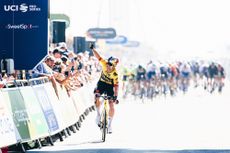
Funds still outstanding after British Cycling agreed to honour prize money
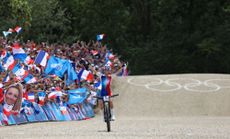
Pauline Ferrand-Prévot signed for Visma-Lease a Bike this week due to Ineos Grenadiers still lacking plans for a Women’s WorldTour team
By Tom Thewlis Published 9 August 24
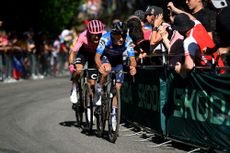
Double Olympic champion Remco Evenepoel expected to feature for Soudal Quick-Step as Belgian team return to the race for the first time since 2021
By Tom Thewlis Published 7 August 24
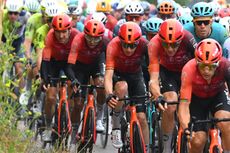
The British team are always under pressure to match their past best, but it’s not going to happen anytime soon
By Adam Becket Published 23 July 24
Useful links
- Tour de France
- Giro d'Italia
- Vuelta a España
buyers-guides
- Best road bikes
- Best gravel bikes
- Best smart turbo trainers
- Best cycling computers
- Editor's Choice
- Bike Reviews
- Component Reviews
- Clothing Reviews
- Contact Future's experts
- Terms and conditions
- Privacy policy
- Cookies policy
- Advertise with us
Cycling Weekly is part of Future plc, an international media group and leading digital publisher. Visit our corporate site . © Future Publishing Limited Quay House, The Ambury, Bath BA1 1UA. All rights reserved. England and Wales company registration number 2008885.
- Live on Sky
- Get Sky Sports
- Sky Mobile App
- Kick It Out
- Black Lives Matter
- British South Asians in Football
More Sports
Mark Cavendish on Tour de France record: There's always a finish line with everything in life
Mark Cavendish speaks exclusively to Sky Sports News following the conclusion of his final Tour de France campaign; Cavendish claimed record-breaking 35th victory on Tour de France when he prevailed in the fifth stage; Cavendish broke record previously held jointly with Eddy Merckx
Wednesday 24 July 2024 09:39, UK
Please use Chrome browser for a more accessible video player

History-making British cyclist Mark Cavendish told Sky Sports News "there's always a finish line with everything in life" following his final Tour de France campaign.
Cavendish claimed a record-breaking 35th career Tour de France stage win with victory in Saint-Vulbas, moving clear of Eddy Merckx to stand alone in Tour history three years after matching the Belgian on 34 during the 2021 Tour.
Cavendish's four stage wins in 2021 counted as one of sport's great comeback stories, his first victories at the Tour in five years after a period of time marked by illness and injury which contributed to a diagnosis of depression.
Even since those wins three years ago, Cavendish has endured more difficulty, only signing a last-minute deal with Astana-Qazaqstan ahead of the 2023 season after the collapse of another move, then seeing last year's Tour end abruptly on stage eight due to a broken collarbone.
- Mark Cavendish breaks record with historic 35th Tour de France stage win
- Tour de France champion Tadej Pogacar pulls out of Olympics
- Cavendish, Souness & Sciver-Brunt named in King's Birthday Honours list
Speaking from the Sky Sports News studio on Tuesday, Cavendish said: "Whatever happens, no matter how bad something gets or how bad you think it is, the one thing is you don't give up. You try. I have five kids and I instil that into them.
- Papers: 'Man Utd missed out on Simons in summer window'
- Ten Hag: Rashford returning to form after changing 'lifestyle'
- Ten Hag exclusive: Critics always want Man Utd to fail
- PL Predictions: Glasner & Palace to school Ten Hag
- What time are Joshua and Dubois fighting?
- Joshua outweighs career-heaviest Dubois
- Double Man Utd injury boost ahead of Crystal Palace trip
- Transfer Centre LIVE! Martial completes move to AEK Athens
- Ugarte's tough task at Man Utd, deadly Hudson-Odoi a Forest bargain
- 'As I was saying...' | Joshua mocks Dubois at final press conference
- Latest News
"There's always a finish line. If you put life or anything you do in terms of a bike race, there is a finish line.

🏆 HE’S DONE IT!!! @MarkCavendish 35th win in the Tour de France!!! 🏆 IL L’A FAIT !!! @MarkCavendish remporte sa 35ème victoire sur le Tour de France !!! #TDF2024 pic.twitter.com/Ad1cy9dWXQ — Tour de France™ (@LeTour) July 3, 2024
"Each time you push a little bit further, you're closer to it, and it will arrive at some point. That's just how I see everything I do.
Latest Cycling Stories
Geraint Thomas: Former Tour de France winner signs contract extension with INEOS Grenadiers
UCI to ban transgender women from participating in female cycling events under new policy
Mark Cavendish retires: Former world champion and Olympic medallist to end cycling career at end of 2023
Lizzie Deignan: British cyclist to miss 2022 season after announcing pregnancy but plans return for 2023
Grand Tour winner Egan Bernal to undergo further surgery after crash in Colombia
Egan Bernal: Former Tour de France winner to undergo surgery after training crash in Colombia
"You need something to aim for, something to target. For the last three years, it's been another stage win on the tour.
"I've lived an incredible journey, with a nation of bike lovers who have lived this journey with me."

Cavendish's first Tour stage win came in 2008 on stage five, Cholet to Chateauroux and was quickly followed by three more wins in that year's edition. Since then, Cavendish has continued to rack up wins over 10 Tours de France.
Having finished his final campaign on the Tour, the Brit revealed he feels fortunate to depart the sport on his terms.
"I'm very lucky that everything I wanted to do in the sport, I've done now," Cavendish added. "There's not many people can have the choice to continue or not. I feel very fortunate for that.
"Even before I was a professional, I'd given my life to the sport. Now my kids are riding bikes. In whatever capacity, I'll always be around it.
"I guess it's [retirement] hard if you're not in control of it. I announced my retirement last year, crashed out with a broken collarbone, and I know I was lucky to have the opportunity to continue with it.

"To still continue with a goal and wake up every day with something to aim for is something special. I get to ride my bike for a living.
"It will be wonderful at some point to look back and think about results and the memories I made at the Tour de France. Not just the victories - most of it you are suffering. You suffer through mountains to get the opportunity to sprint.
"When I started, no one talked about Eddy Merckx winning 34 Tour de France stages, because it wasn't reachable.
"One stage makes a rider's whole career. Let alone one per year or one every few years. I was fortunate to be part of some incredible teams, and we had success.
"It's pretty hard. You never really stop, but you never really know what not being tired is. You always feel like you've done work. It's the same with every endurance sport. But I have the freedom to ride my bike in beautiful places. It can take its toll on your body, that's for sure."
Cavendish 'one of our greatest sportsmen'
Great Britain Cycling Team Performance Director Stephen Park CBE said: "On behalf of British Cycling I would like to congratulate Sir Mark on a truly outstanding achievement.
"It goes without saying that Mark is one of the greatest British riders of all time, and to cap off his final season of racing with another victory at the sport's biggest race is a fitting final chapter in a glittering career.
THIRTY FIVE! 🚀 Sir Mark Cavendish. Cycling's greatest ever sprinter. #TDF2024 pic.twitter.com/vqzOF2nIsP — British Cycling (@BritishCycling) July 3, 2024
"We have been proud to support Mark from his early days on the Great Britain Cycling Team academy to his final Tour de France, and this is an incredibly special day for the coaches, support staff, fellow riders and fans who have all played a role in his journey.
"Mark's long and storied career, his passion for the sport and his tenacious pursuit for excellence make him a real inspiration for the next generation of bike riders looking to follow in his footsteps.
"He is one of our country's truly great sportsmen and sporting personalities, and it has been a privilege to have watched him reign supreme for all these years."
Ad content | Stream Sky Sports on NOW
Stream Sky Sports live with no contract on a Month or Day membership on NOW. Instant access to live action from football, darts, cricket, F1, tennis, golf, rugby league, rugby union and more.
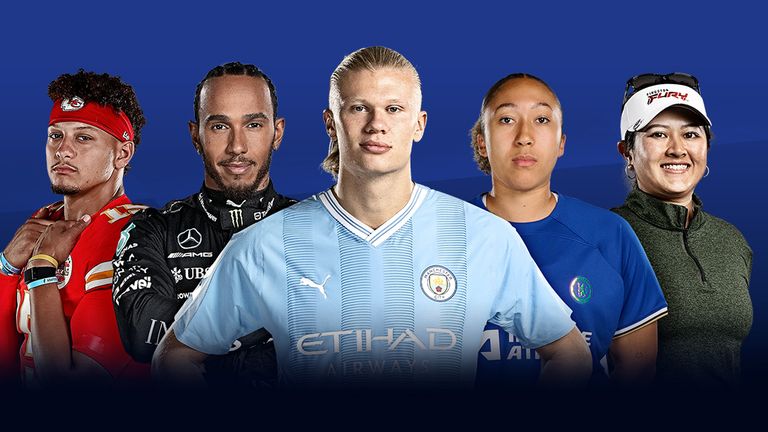
- Upgrade Now

Not got Sky? Stream Sky Sports with NOW!
- Race calendar
- Tour de France Femmes
- Vuelta a España
- Tour de France
- Giro d'Italia
- Dare to Dream
- All Competitions
- Tennis Home
- Calendar - Results
- Australian Open
- Roland-Garros
- Cycling Home
- Football Home
- Fixtures - Results
- Premier League
- Champions League
- All leagues
- Snooker Home
- World Championship
- UK Championship
- Major events
- Olympics Home
- Mountain Bike Home
- Speedway GP Home
- Alpine Skiing Home
- Men's standings
- Women's standings
- Athletics Home
- Diamond League
- World Championships
- World Athletics Indoor Championships
- Biathlon Home
- IBU World Championships
- Cross-Country Skiing Home
- Cycling - Track
- e-Sports Home
- Esports World Cup
- Equestrian Home
- Figure Skating Home
- Formula E Home
- Calendar - results
- DP World Tour
- MotoGP Home
- Motorsports Home
- Speedway GP
- Clips and Highlights
- Rugby World Cup predictor
- Premiership
- Champions Cup
- Challenge Cup
- All Leagues
- Sailing Home
- Ski Jumping Home
- Superbikes Home
- Triathlon Home
- UCI Track CL Home
- Hours of Le Mans
- Winter Sports Home
Egan Bernal starting contract with 'horrible injury' key factor in Ineos Grenadiers' budget woes says Luke Rowe
/dnl.eurosport.com/sd/img/placeholder/eurosport_logo_1x1.png)
Published 20/09/2024 at 18:08 GMT
Ineos Grenadiers have taken 14 wins in the 2024 season, lower than all but three World Tour teams, though stalwart Luke Rowe believes their underperformance compared to budget can be explained by Egan Bernal's horrific 2022 injury. Bernal had just signed a bumper four-year contract as a multiple Grand Tour winner but Ineos have struggled to recapture their former glories in the seasons since.
'You can't sugarcoat it' – Ineos are 'underperforming', admits Rowe
Who is riding men's time trial at Road World Championships?
16 hours ago
/origin-imgresizer.eurosport.com/2024/04/14/3949239-80198488-2560-1440.jpg)
Amstel Gold Race final kilometre: Pidcock edges thrilling four-man showdown
Rowe rubbishes UAE TEAM EMIRATES COMPARISON
Men's time trial guide - evenepoel and kung set for titanic tussle in zurich, women's time trial guide - dygert and brown set for rainbow jersey rematch, ‘this is what you came for’ - merlier outsprints philipsen to claim win in flanders.
Egan Bernal: Tour de France gets youngest winner for more than a century
At the age of just 22, Egan Bernal is the youngest cyclist to win the Tour de France in more than 100 years.
Sunday 28 July 2019 21:50, UK
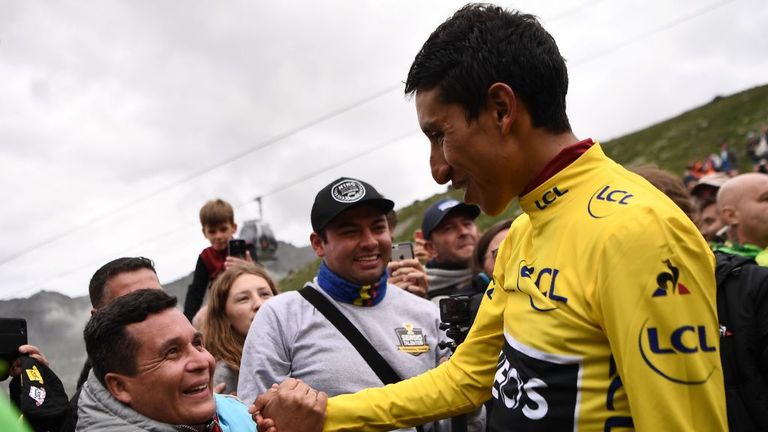
Colombia's Egan Bernal is just 22 and has become the youngest winner of the Tour de France for more than a century - and also a national hero.
As he rode down the Champs-Elysees, his dad and fiancee watching, he became the first Colombian to win cycling's most important race.
But the cheers were probably loudest in his cycling-mad home country, which has become transfixed by his mission to win what is one of the world's toughest sports events.
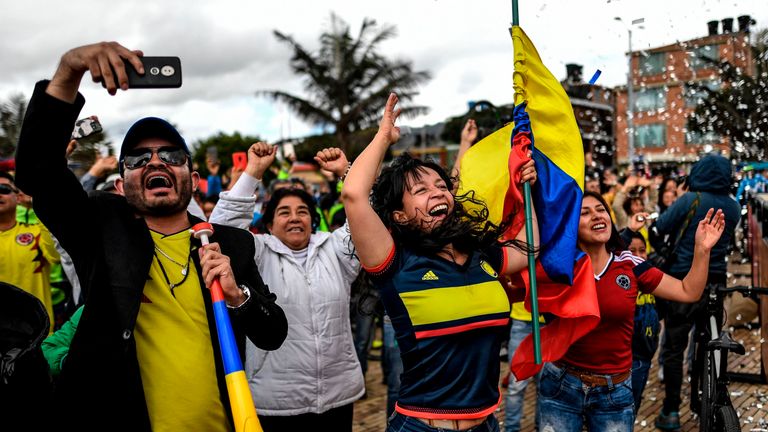
But who is the man that Britain's Bradley Wiggins and other experts say could now dominate the Tour de France for years?
Bernal grew up in the mountains - in Zipaquira - a town 2,650m (8,700ft) up in the Andes, honing his skills on tough climbs and naturally learning to push his body in the thin air.
His talent was discovered at the age of eight when he joined a mountain bike class for underprivileged children run by the city government.
"He was always disciplined and a hard worker. You never had to tell him to do something twice," said Fabio Rodriguez, who coached the young Bernal and says he immediately realised he was special.
More on Colombia

Prince Harry and Meghan to visit Colombia later this summer for four days

Colombia: At least one dead and 20 injured after cable car collapses

Major US banana firm Chiquita Brands ordered to pay $38m to victims of Colombian terror group it funded
Related Topics:
The young rider had the talent and the wiry physique to excel - today he weighs around 59kg (just over nine stone).
He underscored his potential by going to Europe as a teenager and notching up some impressive mountain bike performances, such as second in the world junior cross-county championships.

But incredibly, it wasn't until 17 - just five years ago - that he turned to road racing.
His ascent to the top of the sport has been swift: joining Team Sky (now Team Ineos) at the start of 2018 from Italian team Androni, he won the Tour of California last year.
"He's such a well-balanced, super generous, kind, very giving individual, very concerned about everyone else," says Team Ineos boss Dave Brailsford
"Yet he's got this incredible winning streak inside him which has made him the champion that he already is."
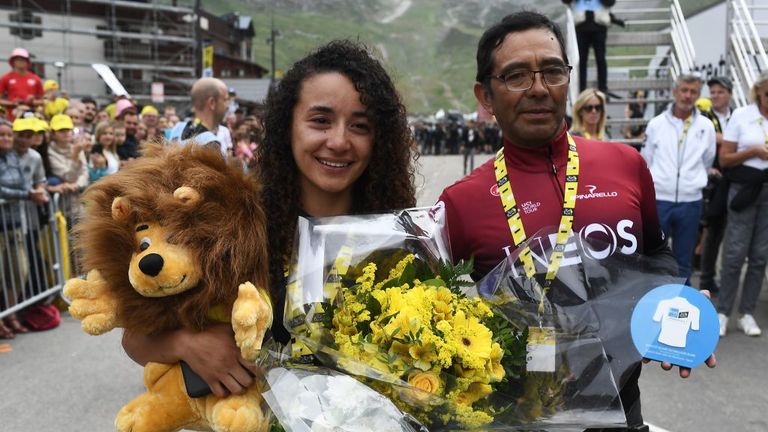
Bernal supported teammate Geraint Thomas for the Briton's maiden Tour de France victory last year and surprised many by himself finishing 15th overall.
"The talent is there to see, he was born to go uphill fast," Thomas said during this year's event.
And now, it's the Welshman who's been supporting the Colombian's push towards Paris.
Bernal's childhood dream looked like becoming reality two days ago, when he took the overall lead for the first time after a hailstorm forced organisers to abandon one of the mountain stages.
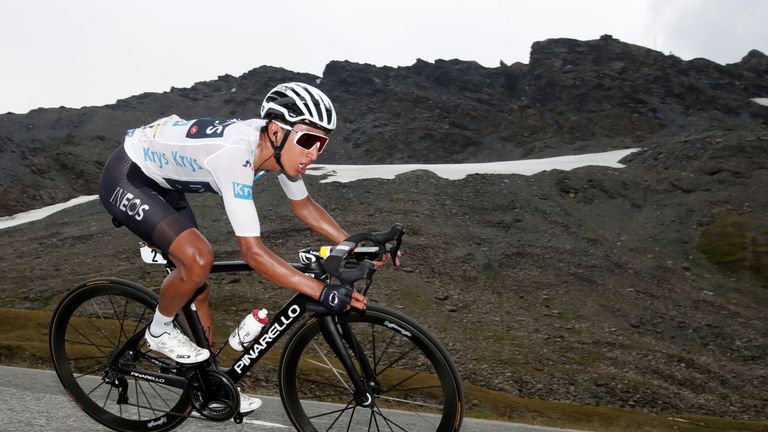
Thomas says he's advised his teammate to relish his big moment in Paris, telling him: "Enjoy it, soak it all up and don't worry about crying, because all real men cry."
In Bernal's home town, flag-waving crowds have been packing the Plaza of Hope to watch his progress, with some young cyclists watching in tears as their hero - thousands of miles away - hauled himself up the Alps.
The South American country has had cycling heroes before.
Luis "Lucho" Herrera in 1984 became the first of 12 Colombians to win a stage at the race; others from the country have worn the polka-dot "King of the Mountains" jersey.
Nairo Quintana finished second in 2013 and 2015 and is one of two Colombians behind Bernal in this year's top 10.

But the jubilation in Colombia when Bernal crosses the line in Paris will take the country's love of cycling to a new level.
"I feel this is not only my triumph but the triumph of a whole country," said Bernal, speaking with just the final processional stage to go, where riders traditionally go unchallenged
The 22-year-old's father - himself once a semi-pro cyclist - and his fiancee Xiomy Guerrero are in France supporting him.
"My dad couldn't talk at first but when he managed, he congratulated me," said Bernal of his impending victory.
"He was about to cry. For us, it's a dream. We used to watch the Tour on TV and we thought it was something unreachable.
"As a kid, you think 'How cool it would be to be there one day', but it looked so far away. Here we are and I'm very emotional."
Related Topics
Tour de France winners
A full list of champions from 1903-2023 and follow Cyclingnews' coverage of the French Grand Tour to find out who will win the yellow jersey in 2024
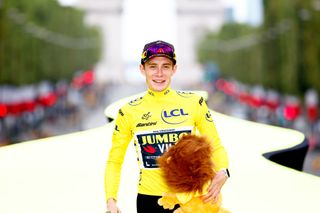
The 111th edition of the Tour de France starts in Florence, Italy, on Saturday, June 29 and ends three weeks later in Nice on Sunday, July 21. Cyclingnews highlights the full list of champions from 1903-2023. Stay tuned to find out who will be the next winner at the 2024 Tour de France .
Tadej Pogačar (UAE Team Emirates) is trying to be the first rider since Marco Pantani in 1998 to win the Giro d'Italia and Tour de France in the same year and go down in history as one of the greatest cyclists of all time.
Previous overall and classification winners
2023
1 Jonas Vingegaard (Den) Jumbo-Visma 2 Tadej Pogacar (Slo) UAE Team Emirates 3 Simon Yates (GBr) UAE Team Emirates
1 Jonas Vingegaard (Den) Jumbo-Visma 2 Tadej Pogacar (Slo) UAE Team Emirates 3 Geraint Thomas (GBr) Ineos Grenadiers
1 Tadej Pogacar (Slo) UAE Team Emirates 2 Jonas Vingegaard (Den) Jumbo-Visma 3 Richard Carapaz (Ecu) Ineos Grenadiers
2020 1 Tadej Pogacar (Slo) UAE Team Emirates 2 Primoz Roglic (Slo) Team Jumbo-Visma 3 Richie Porte (Aus) Trek-Segafredo
2019 1 Egan Bernal (Col) Team Ineos 2 Geraint Thomas (GBr) Team Ineos 3 Steven Kruijswijk (Ned) Team Jumbo-Visma
2018 1 Geraint Thomas (GBr) Team Sky 2 Tom Dumoulin (Ned) Team Sunweb 3 Chris Froome (GBr) Team Sky
2017 1 Christopher Froome (GBr) Team Sky 2 Rigoberto Uran (Col) Cannondale-Drapac 3 Romain Bardet (Fra) AG2R-La Mondiale
2016 1 Christopher Froome (GBr) Team Sky 2 Romain Bardet (Fra) AG2R-La Mondiale 3 Nairo Alexander Quintana Rojas (Col) Movistar Team
2015 1 Christopher Froome (GBr) Team Sky 2 Nairo Quintana (Col) Movistar Team 3 Alejandro Valverde (Spa) Movistar Team
2014 1 Vincenzo Nibali (Ita) Astana Pro Team 2 Jean-Christophe Péraud (Fra) AG2R-La Mondiale 3 Thibaut Pinot (Fra) FDJ.fr
2013 1 Christopher Froome (GBr) Sky Procycling 2 Nairo Alexander Quintana Rojas (Col) Movistar Team 3 Joaquim Rodriguez Oliver (Spa) Katusha
2012 1 Bradley Wiggins (GBr) Sky Procycling 2 Christopher Froome (GBr) Sky Procycling 3 Vincenzo Nibali (Ita) Liquigas-Cannondale
2011 1 Cadel Evans (Aus) BMC Racing Team 2 Andy Schleck (Lux) Leopard Trek 3 Frank Schleck (Lux) Leopard Trek
2010 1 *Andy Schleck (Lux) Team Saxo Bank 2 Denis Menchov (Rus) Rabobank 3 Samuel Sánchez Gonzalez (Spa) Euskaltel - Euskadi
2009 1 Alberto Contador Velasco (Spa) Astana 2 Andy Schleck (Lux) Team Saxo Bank 3 Lance Armstrong (USA) Astana
Note: *Andy Schleck was awarded victory of the 2010 Tour de France after original winner Alberto Contador was disqualified for doping. *Lance Armstrong was stripped of all race results from August 1, 1998 onwards following the US Anti-Doping Agency’s investigation into doping at the US Postal Service team. *Austria's Bernhard Kohl tested positive for EPO-CERA on October 13, 2008. He admitted to its use on October 15, 2008 and was stripped of his third place GC finish at the 2008 Tour de France. *Oscar Pereiro was awarded the victory of the 2006 Tour de France on October 16, 2007, after original winner Floyd Landis was disqualified for doping.

Thank you for reading 5 articles in the past 30 days*
Join now for unlimited access
Enjoy your first month for just £1 / $1 / €1
*Read any 5 articles for free in each 30-day period, this automatically resets
After your trial you will be billed £4.99 $7.99 €5.99 per month, cancel anytime. Or sign up for one year for just £49 $79 €59
Try your first month for just £1 / $1 / €1
Get The Leadout Newsletter
The latest race content, interviews, features, reviews and expert buying guides, direct to your inbox!
Past winners of the UCI Road World Championships through to 2023
UCI Gravel World Championships winners
Visma-Lease a Bike sports director: Vingegaard has to improve or 'he probably won't be able to beat Pogačar'
Most popular, latest on cyclingnews.
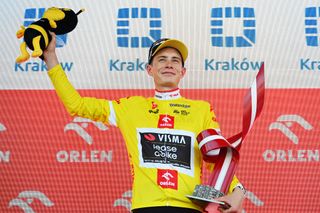
'One crash too many' - Wout van Aert looks ahead after Vuelta a España accident and injury
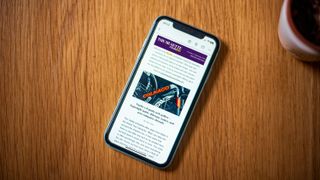
Cyclingnews launches new weekly subscriber-only newsletter
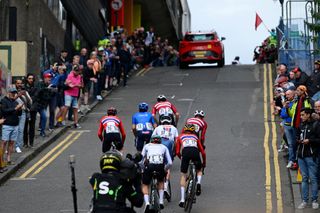
UCI Road World Championships 2024 - Junior Men's Road Race contenders

IMAGES
VIDEO
COMMENTS
July 7, 2011. November 11, 2011. By 2012, Team Sky was flying, and Wiggins made the impossible dream of a Tour de France victory within five years come true in the squad's third season. He went on ...
1 2010 - Sky Professional Cycling. 2 2011 - Sky Procycling. 3 2012 - Sky Procycling. 4 2013 - Sky Procycling. 5 2014 - Team Sky. 6 2015 - Team Sky. 7 2016 - Team Sky. ... Combativity award on Stage 13 Tour de France, Juan Antonio Flecha Stage 3 Ster Elektrotoer, Greg Henderson
The Tour de France is an annual road bicycle race held over 23 days in July. Established in 1903 by newspaper L'Auto, the Tour is the best-known and most prestigious of cycling's three "Grand Tours"; the others are the Giro d'Italia and the Vuelta a España. [1] The race usually covers approximately 3,500 kilometres (2,200 mi), passing through France and neighbouring countries such as Belgium. [2]
2010-2012: The First British Tour Winner. It is something of a gripe in cycling that when talking about professionals we tend to fixate on the Grand Tours, especially on the Tour de France. But major stage races were always Team Sky's focus. 2010 - Team Sky's first season - was a disappointment.
Ineos Grenadiers (UCI team code: IGD [3]) (stylised as INEOS Grenadiers) (formerly Team Sky from 2010 to 2019, and Team Ineos from 2019 to 2020) is a British professional cycling team that competes at the UCI WorldTeam level. The team is based at the National Cycling Centre in Manchester, England, with a logistics base in Deinze, Belgium. [4] The team is managed by British Cycling's former ...
1903. 1. Maurice Garin. France. La Française. * footnotes. 1904: The original winner was Maurice Garin, however he was found to have caught a train for part of the race and was disqualified. 1996: Bjarne Riis has admitted to the use of doping during the 1996 Tour.
Every winner of the Tour de France from 1903 onwards ... the first British rider of the men's Tour de France race was Bradley Wiggins (Team Sky) in 2012. ... I'm one of Cycling Weekly's content ...
Tour de France Winners List. Published on June 7, 2021. in Men's Cycling. Many great champion riders are winners of the Tour de France in its 100+ year history. There are currently 4 riders with 5 Tour de France victories: Miguel Indurain, Bernard Hinault, Eddy Merckx and Jacques Anquetil. Chris Froome is still an active rider and on 4 ...
The 32-year-old rider says he is "floating around on cloud nine" after his "incredible" victory in the three-week event. Team Sky's Geraint Thomas has won the Tour de France, becoming the first ...
Cyclingnews The World Centre of Cycling. Search. Search Cyclingnews. Sign in. ... Team Sky 2 Tom Dumoulin (Ned) Team Sunweb 3 Chris Froome (GBr) Team Sky ... All Tour de France winners; Year ...
Many laughed at Team Sky's ambition of winning the Tour de France, but a second Briton has claimed the title in consecutive years. By Paul Kelso, Sports Correspondent Saturday 20 July 2013 15:45, UK
Cyclist Chris Froome has crossed the finish line in Paris to become Britain's first four-time winner of the Tour de France. The Team Sky rider, who previously triumphed in 2013, 2015 and 2016 ...
In 2009, when Dave Brailsford announced the creation of Team Sky, Britain's only professional race cycling team, the goal was to win the Tour de France within five years - a bold target ...
Sun, Jul 22, 2012 21:53. 3. Bradley Wiggins has today become the first British cyclist to win the Tour de France in its 109-year history. The 32-year-old's victory is the result of 12 months' planning by Team Sky after he crashed out of the 2011 race with a broken collarbone. That plan still needed to be executed on the road, however, and ...
Sunday 24 July 2016 21:31, UK. Chris Froome won the Tour de France for the third time on Sunday. Chris Froome sealed his third overall victory at the Tour de France on Sunday. The Team Sky rider ...
Find out the latest news, stage reports, race scores and expert analysis from the 2019 Tour de France. Cyclingnews.com: The world centre of cycling.
In terms of reputation, Geraint Thomas' Tour de France victory appears a blessing for Team Sky after a year of controversy - and perhaps a relief for the wider sport too. Certainly, a more ...
Going into stage 12, finishing on Alpe d'Huez, the GC boat had been well and truly rocked at Team Sky after Geraint Thomas had won the first stage of a Tour alpine double header at La Rosière.
Egan Bernal: Former Tour de France winner to undergo surgery after training crash in Colombia "You need something to aim for, something to target. For the last three years, it's been another stage ...
Chris Froome, winner of the 2015 Tour de France, with other members of Team Sky at the presentation before the first stage in Utrecht.. The 2015 Tour de France was the 102nd edition of the race, one of cycling's Grand Tours.The race took place from 4 July to 26 July 2015, starting in Utrecht in the Netherlands and finishing on the Champs-Élysées in Paris.
Bernal is the latest rider to win a Grand Tour for Ineos and also claimed their most recent Tour de France victory in 2019 - their only yellow jersey under the current ownership after six as Team Sky.
Why you can trust Sky News. Colombia's Egan Bernal is just 22 and has become the youngest winner of the Tour de France for more than a century - and also a national hero. As he rode down the ...
*Oscar Pereiro was awarded the victory of the 2006 Tour de France on October 16, 2007, after original winner Floyd Landis was disqualified for doping. Swipe to scroll horizontally All winners
The 111th edition of the Tour de France starts in Florence, Italy, on Saturday, June 29 and ends three weeks later in Nice on Sunday, July 21. Cyclingnews highlights the full list of champions ...